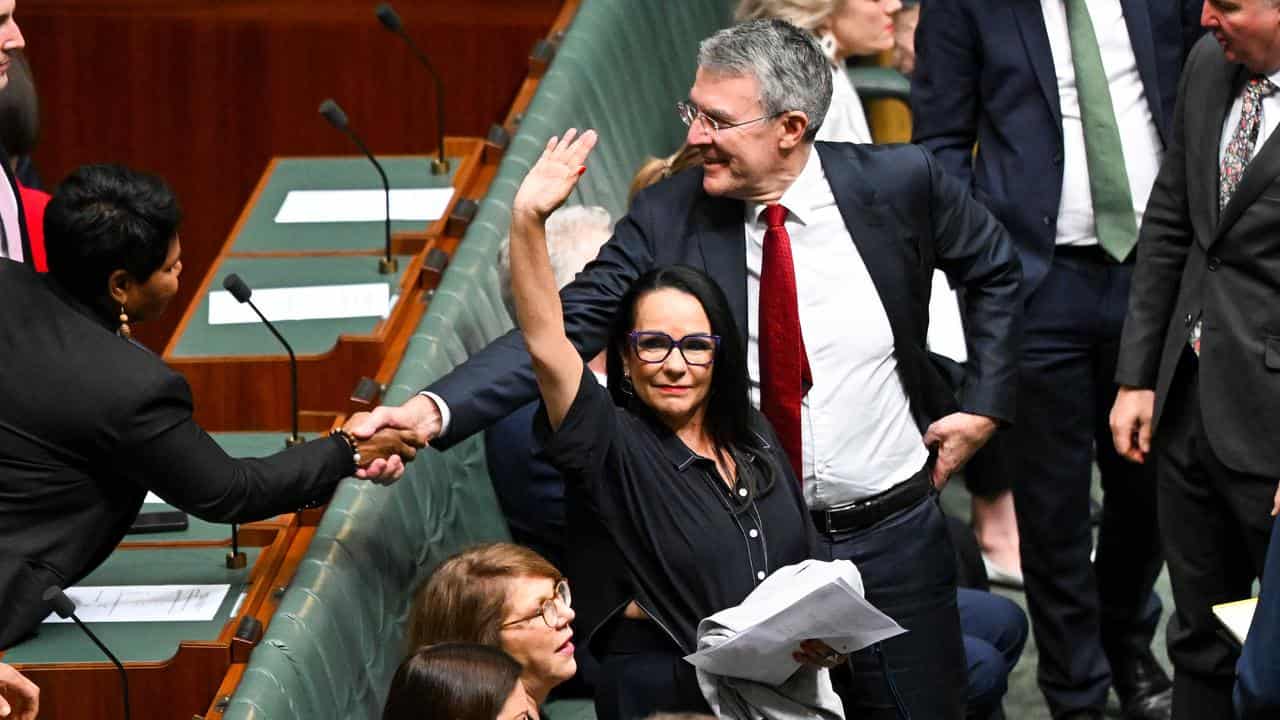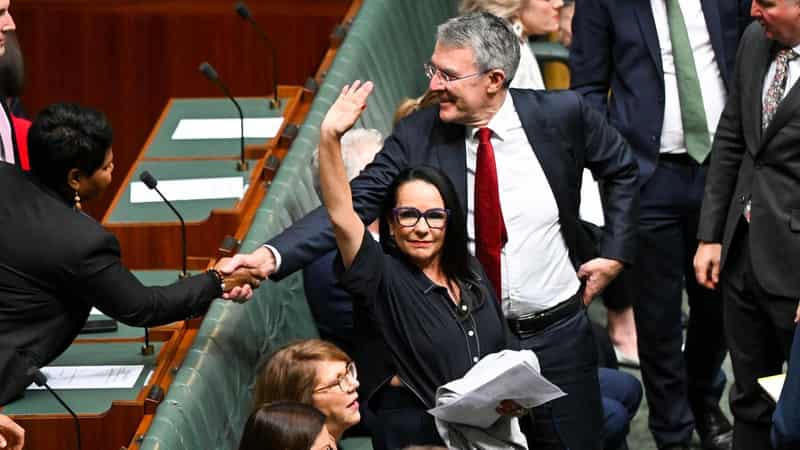
Supporters of the Indigenous voice say the rubber can hit the road now the lower house has voted to set up the referendum.
Indigenous Australians Minister Linda Burney said the push for the voice was entering a new phase as the campaign got into full swing.
"We in the parliament have done our job ... we will now have the campaign going forward, I have no doubt it will be absolutely positive and it will be something that Australians respond to," she said.
The House of Representatives passed laws on Wednesday to finalise the wording of the question to be put to the public, along with the changes to the constitution should the referendum be successful.
The vote passed 121 to 25, followed by applause throughout the chamber.
Despite large numbers of opposition MPs rejecting calls for an Indigenous voice, most coalition members voted to set up the referendum, including Opposition Leader Peter Dutton.
The opposition nominated several MPs as "authorised dissenters" to vote 'no' in the house to enable them to have input on the referendum pamphlet that will be sent to all households.
Those voting 'no' included Nationals leader David Littleproud and former deputy prime ministers Barnaby Joyce and Michael McCormack.
Debate will move to the Senate and the laws are likely to pass parliament in June, with the referendum to be held between October and December.
The parliamentary step comes as an alliance of more than 120 multicultural groups gave support to the proposed constitutional change.
Multicultural Australia for the Voice, which includes Indian, Chinese and other community groups, signed a joint resolution backing a 'yes' vote in the referendum.
Yes23 campaign director Dean Parkin said the support was welcomed.
“The 'yes' campaign for this year’s referendum is bringing an inspirational cross-section of Australians together," he said.
"Efforts on the ground and support for a voice to parliament by ethnic and cultural groups show momentum for a 'yes' vote continues to build across the country."
Co-chair of the Uluru Dialogue Megan Davis said there was still work to be done, but the country was ready for constitutional change.
"The bill's passage through the lower house continues this momentum," she said.
"We are energised and optimistic that - come referendum day - the majority of Australians will have joined First Nations peoples along the road and will be walking alongside us in this movement to a better future."
Prime Minister Anthony Albanese said the vote for the referendum in the lower house was a significant step.
"This referendum can be a moment of national unity just as the apology was - an extraordinary opportunity for every Australian to be counted and heard," he said.
"This is not something that began in Canberra, this certainly has not been rushed into, it is a response to a gracious request from our Aboriginal and Torres Strait Islander people."









